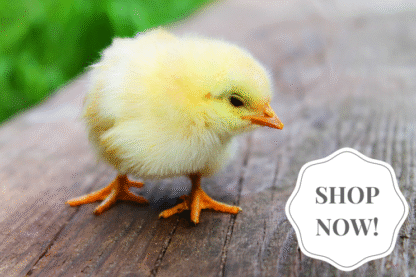
Placing a value on chickens killed by a dog is not always easy. To start with, most backyard chicken keepers value their chickens much more than the birds’ economic value. However, anyone wishing to obtain compensation from the dog’s owner must set aside emotions and try to make the best case for the chickens’ monetary value.
Establish Value
The place to start in attempting to establish value is to check your local and state laws regarding compensation for livestock killed by nuisance dogs. Most laws limit compensation to either the chicken’s market value or replacement cost.
On the other hand, some laws penalize a dog’s owner by allowing for extra compensation, such as double or triple the chickens’ value. And, depending on the circumstances, sometimes the chickens’ owner can collect for emotional distress.
The fair market value is the amount you would receive had you sold the chickens. This method may be appropriate if you engage in selling or buying chickens of the same age, breed, and quality as those you lost.
Chickens you recently sold that are comparable to those killed would establish their fair market value. The market value of chickens purchased may be established by receipts, as well as by ads in local newspapers and online marketplaces such as Craigslist. Look for comparable chickens in terms of age and breed — and show quality, if applicable. Make copies of the ads you find.
Check also with local auction houses. Get written statements from auction owners or auctioneers. If you have to look outside your area for the kind of chickens you lost, be sure to include the shipping expense in your documentation. Some breeds originally purchased as chicks from Cackle Hatchery, for instance, are available as started pullets.
Replacement cost is typically higher than market value. For example, if you never bring grown chickens onto your place for biosecurity reasons, your replacement cost would include purchasing chicks (plus shipping) and raising them to the age of those you lost. Retained records of how much feed you bought to raise your lost chickens would be invaluable in establishing a replacement cost.
Some chickens have economic value beyond market value or replacement cost. For instance, the value of chickens you have been breeding and successfully showing for many years may be higher, because they are unlike any chickens you might purchase. Another example might be compensation for the lost benefit of eggs (or sale of eggs) the chickens would have laid had they not been killed.
Be sure to also document the cost to repair any property that was damaged during the dog attack. You might also want to document your time involved in such things as cleaning up the kill site, repairing damage to facilities, finding new chickens, and missing work. You may not be compensated for your lost time, but if you don’t have a record you surely won’t be.
Have Proof
Can you prove the dog, or dogs, in question actually did the deed? The best proof is to have photos, or better yet a video, of the dog in the act of chasing or killing your chickens.
Immediately after the event, contact your local law enforcement agency. Ask for an officer to be sent out to inspect the scene, interview witnesses, speak with the dog’s owner, and file a report. Obtain a copy of that report for your documentation file. Aside from helping document your claim, criminal penalties may apply for the dog running loose.
You might find clumps of hair where the dog entered the chicken area. The length and color of the hair might provide a clue as to the dog’s identity. A DNA test to prove the hair belongs to the dog would be expensive, but if you are certain you know the dog did it (for instance, you saw the dog in the act), just the threat of suggesting the dog owner will have to pay for DNA proof may be enough to get the person to cough up.
Get Compensated
If the dog’s owner is reasonable, you might negotiate compensation directly. When direct negotiations aren’t fruitful, you may wish to seek compensation under either your homeowner’s insurance policy or theirs. However, insurance deductibles usually make small monetary claims cost-prohibitive, in addition to flagging the policy for increased premiums.
Where informal negotiations fail and the chickens were especially valuable, you may consider taking your case to small claims court. But first present the dog owner with a final opportunity to avoid litigation by preparing a formal, written demand for reimbursement. Make copies of the documentation proving your financial damages and send them with the letter by either email or certified mail, return receipt. Give the other party a reasonable amount of time to respond. Often the threat of litigation is enough to induce reasonableness.
Should this tact fail, you can pursue the case in small claims court, with or without an attorney. It can be useful to consult with a lawyer specializing in property damage or animal law regarding how much compensation you may reasonably seek.
In the end, advises chicken-keeping attorney Kathy Shea Mormino, “Unless your chickens were unusually valuable, you’re better off cutting your losses. Pursuing litigation in such cases is rarely worth the time and financial investment.” Besides, as Ms. Mormino points out, “You will never feel fully compensated for the loss of a pet killed by someone else’s.”
And that’s today’s news from the Cackle Coop.
Gail Damerow, author, What’s Killing My Chickens?

